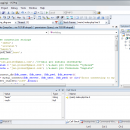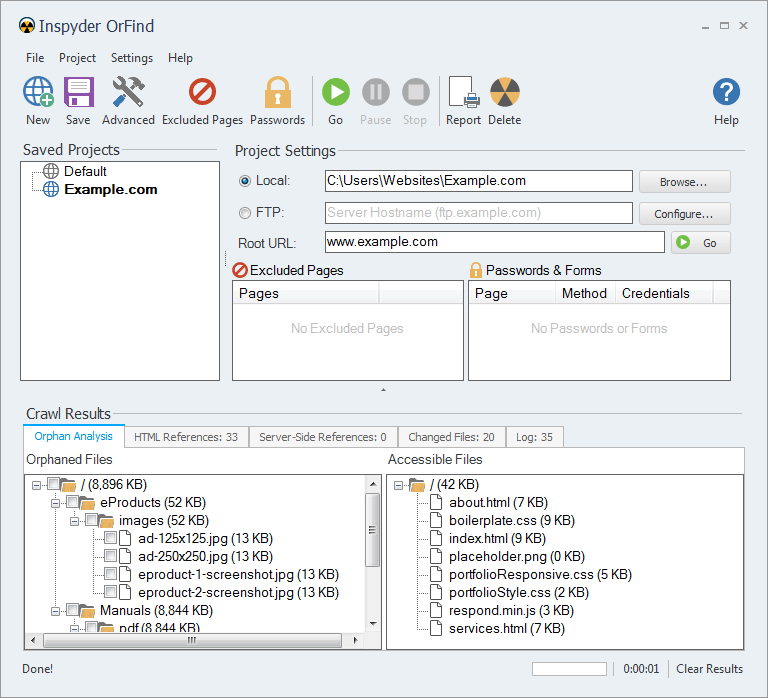PHP for Linux 5.6.1
PHP (recursive acronym for PHP: Hypertext Preprocessor) is a widely-used open source general-purpose scripting language that is especially suited for web development and can be embedded into HTML.
Instead of lots of commands to output HTML (as seen in C or Perl), PHP pages contain HTML with embedded code that does "something" (in this case, output "Hi, I'm a PHP script!"). The PHP code is enclosed in special start and end processing instructions that allow you to jump into and out of "PHP mode."
What distinguishes PHP from something like client-side JavaScript is that the code is executed on the server, generating HTML which is then sent to the client. The client would receive the results of running that script, but would not know what the underlying code was. You can even configure your web server to process all your HTML files with PHP, and then there's really no way that users can tell what you have up your sleeve.
The best things in using PHP are that it is extremely simple for a newcomer, but offers many advanced features for a professional programmer. Don't be afraid reading the long list of PHP's features. You can jump in, in a short time, and start writing simple scripts in a few hours.
There are three main areas where PHP scripts are used.
* Server-side scripting. This is the most traditional and main target field for PHP. You need three things to make this work. The PHP parser (CGI or server module), a web server and a web browser. You need to run the web server, with a connected PHP installation. You can access the PHP program output with a web browser, viewing the PHP page through the server. All these can run on your home machine if you are just experimenting with PHP programming. See the installation instructions section for more information.
* Command line scripting. You can make a PHP script to run it without any server or browser. You only need the PHP parser to use it this way. This type of usage is ideal for scripts regularly executed using cron (on *nix or Linux) or Task Scheduler (on Windows). These scripts can also be used for simple text processing tasks. See the section about Command line usage of PHP for more information.
* Writing desktop applications. PHP is probably not the very best language to create a desktop application with a graphical user interface, but if you know PHP very well, and would like to use some advanced PHP features in your client-side applications you can also use PHP-GTK to write such programs. You also have the ability to write cross-platform applications this way. PHP-GTK is an extension to PHP, not available in the main distribution. If you are interested in PHP-GTK, visit » its own website.
PHP can be used on all major operating systems, including Linux, many Unix variants (including HP-UX, Solaris and OpenBSD), Microsoft Windows, Mac OS X, RISC OS, and probably others. PHP has also support for most of the web servers today. This includes Apache, Microsoft Internet Information Server, Personal Web Server, Netscape and iPlanet servers, Oreilly Website Pro server, Caudium, Xitami, OmniHTTPd, and many others. For the majority of the servers, PHP has a module, for the others supporting the CGI standard, PHP can work as a CGI processor.
So with PHP, you have the freedom of choosing an operating system and a web server. Furthermore, you also have the choice of using procedural programming or object oriented programming, or a mixture of them. Although not every standard OOP feature is implemented in PHP 4, many code libraries and large applications (including the PEAR library) are written only using OOP code. PHP 5 fixes the OOP related weaknesses of PHP 4, and introduces a complete object model.
With PHP you are not limited to output HTML. PHP's abilities includes outputting images, PDF files and even Flash movies (using libswf and Ming) generated on the fly. You can also output easily any text, such as XHTML and any other XML file.
| Author | PHP Development Team |
| License | Open Source |
| Price | FREE |
| Released | 2014-10-02 |
| Downloads | 507 |
| Filesize | 10.00 MB |
| Requirements | |
| Installation | Instal And Uninstall |
| Keywords | PHP Package, Perl hack, PHP programming, PHP, Perl, language |
| Users' rating (24 rating) |
Using PHP for Linux Free Download crack, warez, password, serial numbers, torrent, keygen, registration codes,
key generators is illegal and your business could subject you to lawsuits and leave your operating systems without patches.
We do not host any torrent files or links of PHP for Linux on rapidshare.com, depositfiles.com, megaupload.com etc.
All PHP for Linux download links are direct PHP for Linux full download from publisher site or their selected mirrors.
Avoid: oem software, old version, warez, serial, torrent, PHP for Linux keygen, crack.
Consider: PHP for Linux full version, full download, premium download, licensed copy.


